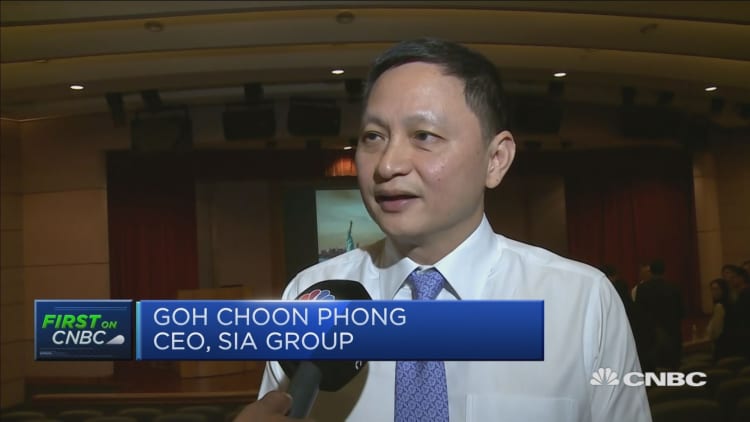
Singapore Airlines CEO Goh Choon Phong told reporters and analysts on Friday that an order for 31 Boeing 737 Max jets remains "intact" despite the aircraft model's two deadly crashes in Ethiopia and Indonesia.
That comes after Singapore Airlines' regional affiliate SilkAir grounded six Boeing 737 Max jets in March.
However, Goh told CNBC's Sri Jegarajah that the grounding adds "some complications" to the planned merger between Singapore Airlines and SilkAir.
With the 737 Max jets — originally planned to be part of the restructuring program — grounded, SilkAir will have to retain its older 737 NG aircrafts which were set to be moved to Scoot, a low-cost carrier owned by Singapore Airlines, he explained.
That means that the airline will have to decide on whether or not to carry out cabin upgrades on the old 737 NG aircrafts instead, Goh said. This also has a "consequential impact" on Scoot, which will now have to "look at growth without the 737 NG," he added
"In both cases, we're looking at solutions. We believe we will have them," Goh told CNBC.
In March, a 737 Max 8 operated by Ethiopian Airlines crashed minutes after takeoff, killing all 157 people on board. That accident came less than five months after the same model plane operated by Indonesia's Lion Air crashed shortly after taking off from Jakarta, killing all 189 on board.
Singapore Airlines on Thursday reported its highest-ever annual revenue, driven by high passenger demand. Higher fuel costs, however, took a big chunk out of the airline's profits, which nearly halved to about S$682.7 million.
—Reuters contributed to this report.

